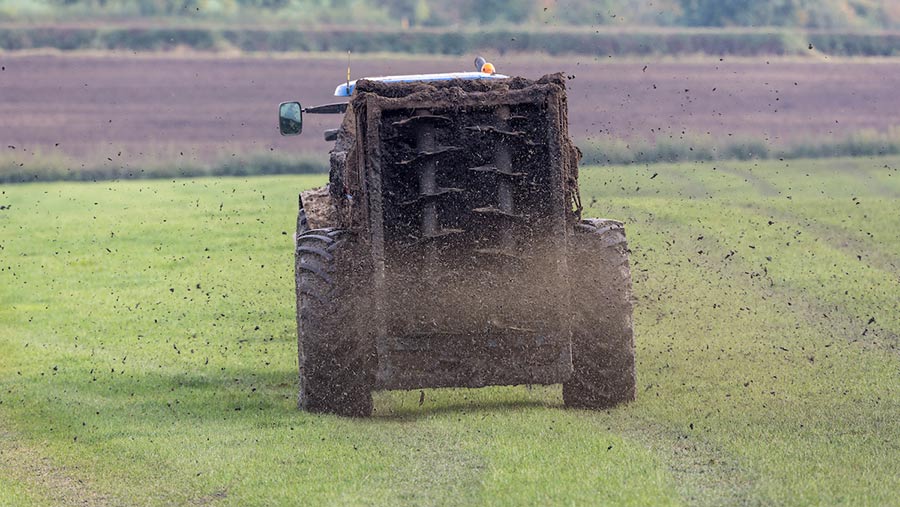Welsh government delays NVZ rule change to October
 © Tim Scrivener
© Tim Scrivener Farm leaders in Wales have welcomed a further delay to the planned introduction of a nitrogen limit licensing scheme to apply organic manure to land, as part of changes to nitrate vulnerable zone (NVZ) regulations.
Wales’ rural affairs secretary, Lesley Griffiths, has announced the implementation date for the 170kg/ha annual holding nitrogen limit will be further extended from 30 April to 31 October this year.
Ms Griffiths said the Welsh government had decided to delay the implementation of the nitrogen limit to allow more time to consider responses to a government consultation on managing the application of livestock manures sustainably, and to give farmers more time once the outcome is announced.
See also: Welsh milk production threatened by planned nitrogen limits
The Welsh government previously announced plans to impose an annual 170kg/ha nitrogen restriction on spreading organic manure on farmland to tackle water pollution from agricultural activities under the Water Resources (Control of Agricultural Pollution) (Wales) Regulations.
The proposals set out a licence scheme whereby any farm business in Wales can apply for a licence with an upper annual organic nitrogen limit of 250kg/ha, subject to crop need and other legal considerations.
The Welsh government has consulted for such as scheme to be operational until 2025.
Wales’ two farming unions, NFU Cymru and the Farmers’ Union of Wales (FUW), have raised serious concerns about imposing an annual holding nitrogen limit on farms.
The unions warn that imposing these restrictions will cause widespread economic uncertainty on farms and the prospect of destocking to comply.
FUW president Glyn Roberts welcomed news of a further six-month delay and he strongly urged the Welsh government to delay the regulations – set to be introduced next year – until alternative technological solutions are considered and the regulations reviewed.
FUW continues to draw attention to the “unintended consequences” the 170kg/ha nitrogen limit alone will have on the ability of Welsh farmers to maintain food production levels and the impact of the regulations in general.
